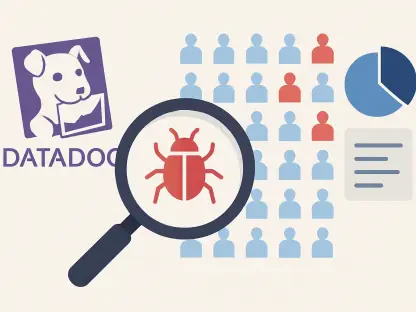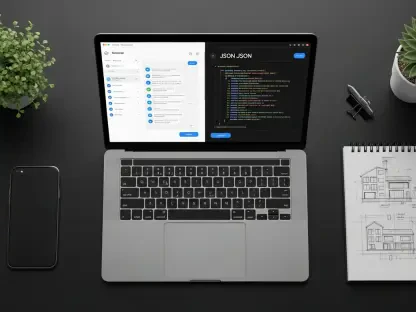The API testing market is experiencing rapid growth, driven by advancements in cloud computing and the adoption of DevOps methodologies. As applications become more interconnected and complex, ensuring seamless operation and data security through API testing has never been more crucial.
Introduction
API, or Application Programming Interface, testing is a cornerstone of modern software development. This practice ensures that APIs function correctly, interact smoothly, and maintain robust security. The market for API testing is projected to grow from approximately USD 1,003.28 million in 2022 to around USD 3,065.36 million by 2029, at a compound annual growth rate (CAGR) of 17.29%. This remarkable growth is driven by the widespread adoption of cloud computing and DevOps practices.
The Essential Role of API Testing
Ensuring Functionality and Security
API testing is paramount in verifying that applications’ APIs are operating as intended. It ensures APIs interact seamlessly and maintain robust data security. Authentication, authorization, and encryption are key facets of API testing, which mitigate risks such as data breaches, interception, or rerouting threats. In an era where digital interactions are fundamental to business operations, the accuracy and security of APIs hold immense importance. Ensuring the reliability of these interfaces is crucial as they serve as the backbone of data communication between different software components and systems.
API testing entails rigorous checks to verify that different endpoints are accessible and that data validation is executed with precision. Each time data traverses between client and server or across different systems, ensuring its authenticity and security becomes pivotal. Testing frameworks validate these interactions at multiple stages to identify and rectify potential vulnerabilities or inconsistencies. Given the rapid pace of digital transformation across industries, maintaining the integrity of data exchange through fortified API testing methodologies is indispensable for the smooth functioning of applications and services.
Investment in Technology
Increased investments in software development are bolstering the API testing market. Cutting-edge technologies like the Internet of Things (IoT), Artificial Intelligence (AI), and Machine Learning (ML) are poised to enhance API testing capabilities. Initiatives such as IndiaAI demonstrate the mainstream integration of AI, driven by technological investment and digital infrastructure advancements. These initiatives are not only fostering innovation but also underscoring the criticality of adaptive testing environments capable of leveraging machine learning algorithms for more intelligent and predictive testing paradigms.
With the proliferation of IoT devices generating unprecedented data volumes, API testing needs to evolve to handle and process this influx efficiently. The integration of AI into testing practices enables automated anomaly detection and predictive analytics, which streamline the identification of potential issues before they impact end users. The confluence of AI and ML in API testing results in smarter, faster, and more efficient testing cycles. As organizations seek to keep pace with technological advancements, their investment in sophisticated API testing solutions will become increasingly imperative to support scalable, secure, and reliable software ecosystems.
The Impact of Agile and DevOps Methodologies
Automation Through DevOps
DevOps practices emphasize quick iterations, continuous integration, deployment, and testing. Within these frameworks, API testing becomes essential for ensuring the smooth operation and integration of APIs throughout the development lifecycle. Automated API testing verifies changes, identifies regressions, and maintains overall software quality, facilitating faster time-to-market. By prioritizing continuous delivery and automated testing, DevOps methodologies reduce the time and effort required to push new features and updates into production environments with minimal risk.
The integration of API testing into the DevOps pipeline ensures that each change is rigorously validated before deployment. Automation minimizes human error and enhances efficiency by executing repetitive testing tasks consistently and swiftly. Additionally, with the ability to run tests continuously throughout the development process, potential issues can be identified and addressed in real-time. This proactive approach mitigates risks associated with post-deployment failures, ensuring robust and reliable API functionality. The symbiosis of DevOps and API testing epitomizes the agility and resilience needed in today’s fast-paced software development landscape.
Agility in Development
The adoption of Agile methodologies further drives the API testing market. Agile focuses on iterative development and frequent releases, necessitating robust API testing to ensure each iteration integrates smoothly with existing systems. The flexibility afforded by Agile and DevOps methodologies significantly enhances API testing’s effectiveness. By fostering a collaborative and adaptive development environment, Agile encourages continuous feedback and rapid response to changes, which are fundamental to maintaining the integrity and functionality of APIs.
API testing, when integrated into Agile workflows, ensures that any new code or updates are immediately tested for compatibility and security. This approach reduces the risk of integration issues and accelerates feedback loops, enabling developers to refine and optimize the APIs iteratively. Agile’s emphasis on short development cycles aligns well with automated API testing, making it a natural fit for rapid and reliable software delivery. As organizations strive to reduce time-to-market while maintaining high-quality standards, the synergy between Agile practices and API testing will continue to be a pivotal factor in achieving seamless and secure application development.
The Influence of Cloud Computing
Proliferation of Cloud-Native Architectures
The rise of cloud computing is a significant trend influencing the API testing market. Organizations are increasingly shifting operations to cloud environments, necessitating robust API testing solutions to ensure integration, security, and scalability. Cloud-native architectures require efficient API management to maintain seamless communication between distributed services and applications. As enterprises migrate to cloud platforms, the complexity of managing and testing APIs across various environments and infrastructures grows, necessitating advanced and adaptable testing tools.
The flexibility and scalability offered by cloud-native architectures enable organizations to innovate and deploy solutions faster. However, this agility also introduces new challenges in ensuring consistent and secure API functionality across dynamic and distributed ecosystems. Robust API testing frameworks are essential in addressing these challenges by providing comprehensive validation, monitoring, and analytics capabilities. Leveraging cloud-based testing solutions can offer real-time insights and facilitate continuous improvement, ensuring that APIs perform optimally in diverse and ever-evolving cloud environments.
Enhancing API Testing Solutions
The growth of cloud-based APIs underscores the necessity for advanced API testing systems. These systems must tackle the unique challenges of cloud-native application development and deployment, such as scalability, distributed services, and security. The proliferation of cloud computing thus propels the demand for sophisticated API testing solutions. Cloud-native testing frameworks enable organizations to simulate diverse scenarios and environments, providing a deeper understanding of API performance under varying conditions.
API testing in cloud environments must address issues such as latency, data synchronization, and fault tolerance to ensure seamless integration and operation. By employing testing strategies that account for these variables, organizations can enhance the resilience and reliability of their APIs. Moreover, cloud-based API testing tools can leverage the elasticity of cloud resources to scale testing efforts dynamically, ensuring comprehensive coverage and robust performance analysis. This adaptability is crucial as businesses increasingly rely on cloud-native architectures to drive innovation and competitiveness in the digital age.
Regional Analysis
North America’s Market Leadership
North America, particularly the USA, is expected to dominate the API testing market throughout the forecast period. The region’s adoption of advanced security solutions, including cloud-based measures, catalyzes market growth. Major market players like Cognizant and IBM further boost North America’s leading role. The robust technological infrastructure and substantial investments in innovation drive the region’s prominence in the API testing landscape, setting benchmarks for quality and security standards globally.
The presence of comprehensive regulatory frameworks and stringent data protection laws in North America also contributes to the region’s leadership in API testing. Organizations in this region prioritize compliance and security, resulting in increased adoption of sophisticated API testing solutions that ensure adherence to regulatory requirements. Additionally, the competitive business environment in North America fosters continuous improvement and innovation, further advancing the capabilities and adoption of API testing practices. As businesses strive to differentiate themselves through technological excellence, North America remains a pivotal hub for driving the evolution and expansion of the API testing market.
Growing Demand in Asia-Pacific
Emerging economies like China and India are also experiencing increasing demand for API testing. Improved digital infrastructure and technological investments in these regions contribute to market expansion. As a result, the Asia-Pacific region plays a vital role in the global growth of the API testing market. The rapid digitization across various industries in this region necessitates robust and reliable API testing solutions to support scalable and secure application development.
Moreover, the Asia-Pacific region’s burgeoning tech sector, driven by a strong focus on innovation and technology adoption, underpins the growing API testing market. Countries like China and India are investing heavily in digital transformation initiatives, creating a fertile ground for advanced API testing frameworks. As businesses in this region increasingly embrace cloud computing, IoT, and AI technologies, the demand for sophisticated API testing solutions will continue to rise. This trend underscores the critical role of the Asia-Pacific in shaping the future landscape of the API testing market and driving global technological advancements.
Challenges in the API Testing Market
Ecosystem Complexity
Maintaining APIs across various ecosystems, such as hybrid and multi-cloud environments, poses significant challenges. Ensuring consistent governance, security, and performance standards across diverse endpoints requires sophisticated and adaptive API testing strategies. The complexity of managing APIs in these environments is compounded by the need to integrate seamlessly with multiple platforms, applications, and services, each with its unique requirements and constraints.
Developing robust API testing frameworks that can navigate the intricacies of hybrid and multi-cloud ecosystems is essential for achieving consistent and reliable performance. These frameworks must be capable of handling varying integration points, data formats, and communication protocols to provide a cohesive testing approach. Additionally, adaptive testing strategies that leverage automation and AI-driven insights can help identify and mitigate potential issues more efficiently. Addressing the challenges of ecosystem complexity is crucial for ensuring the seamless operation and security of APIs in diverse and dynamic environments.
Data Privacy and Compliance
Concerns about data privacy, regulatory adherence, and potential security breaches can hinder the adoption of API testing. Comprehensive strategies addressing these issues are essential to ensure the market’s sustained growth. Organizations must prioritize data protection and compliance with regulations such as GDPR, CCPA, and HIPAA, which mandate stringent security measures for handling sensitive information.
Implementing robust API testing solutions that ensure the confidentiality, integrity, and availability of data is critical for meeting regulatory requirements and protecting against security breaches. These solutions must encompass end-to-end testing processes, including data encryption, access control, and anomaly detection, to safeguard sensitive information. Additionally, continuous monitoring and auditing of API interactions can help organizations maintain compliance and proactively address potential vulnerabilities. By developing comprehensive data privacy and compliance strategies, businesses can foster trust and confidence in their API testing practices, driving sustained growth and adoption.
Integration and Interoperability
Integration and interoperability challenges among different API testing platforms complicate the landscape. Unified approaches are necessary to effectively resolve these challenges, ensuring seamless API management and testing across multiple environments. The diversity of API standards, protocols, and tools requires cohesive testing strategies to ensure compatibility and consistency across various systems and applications.
Developing standardized testing frameworks and open-source tools can facilitate better integration and interoperability among different API testing platforms. These frameworks should support a wide range of protocols and data formats, enabling seamless communication and interaction across disparate systems. Additionally, fostering collaboration and knowledge sharing among industry stakeholders can drive the development of best practices and innovative solutions for tackling integration and interoperability challenges. By adopting unified approaches and embracing standardization, organizations can enhance the effectiveness and efficiency of their API testing efforts, ensuring consistent and reliable performance across diverse environments.
Market Segmentation and Key Players
By Offering and Deployment Model
The API testing market can be segmented by offering (software and services) and deployment model (on-premise and cloud). Each segment caters to different needs and preferences of various end-user industries. The software segment encompasses tools and platforms designed for comprehensive API testing, while the services segment includes consulting, implementation, and support services that help organizations optimize their API testing strategies.
The deployment model is another critical factor in determining the API testing market’s growth and adoption. On-premise solutions offer greater control and customization for organizations with specific security and compliance requirements. In contrast, cloud-based solutions provide scalability, flexibility, and ease of access, making them ideal for businesses seeking to leverage the benefits of cloud computing. Each deployment model has its unique advantages and challenges, and organizations must carefully evaluate their specific needs to choose the most suitable option.
By End-User Industry
End-user industries like communication and technology, banking and financial services, retail, media and entertainment, and healthcare are key adopters of API testing solutions. The unique requirements of each industry drive the development and utilization of specialized API testing tools. For instance, the banking and financial services sector demands robust security and compliance measures, while the healthcare industry focuses on safeguarding sensitive patient data and ensuring interoperability among diverse health information systems.
Industries like retail and media & entertainment, on the other hand, prioritize scalability and performance to support high-volume transactions and seamless user experiences. By identifying and addressing the specific needs of each end-user industry, API testing solutions can deliver tailored functionality and enhanced value. This targeted approach ensures that organizations across various sectors can effectively implement and benefit from advanced API testing practices, driving overall market growth and innovation.
Major Companies in the Market
The API testing market is witnessing swift expansion, largely fueled by innovations in cloud computing and the integration of DevOps methodologies. As businesses rely more heavily on interconnected, complex applications, it becomes imperative to ensure that these applications work seamlessly and securely. API testing serves as a crucial checkpoint in this process, enabling developers to validate the functionality, reliability, and security of their APIs before they go live.
In an environment where applications must communicate smoothly with one another, any failure or vulnerability in an API can result in significant service disruptions, operational inefficiencies, and data breaches. Therefore, comprehensive API testing is not just a best practice but a necessity. It ensures that APIs function as intended, handle data securely, and maintain robust performance under various conditions.
Furthermore, as more organizations transition their infrastructure to the cloud, the importance of robust and reliable API testing becomes even more pronounced. Cloud environments add another layer of complexity to API interactions, making thorough testing essential for the overall integrity of the system. In the context of DevOps, which emphasizes continuous integration and continuous deployment (CI/CD), regular and automated API testing becomes even more critical. It allows for rapid iteration and deployment without compromising on quality or security. Thus, API testing is indispensable in today’s tech landscape, ensuring not only smooth operations but also fortified defenses against potential cyber threats.









